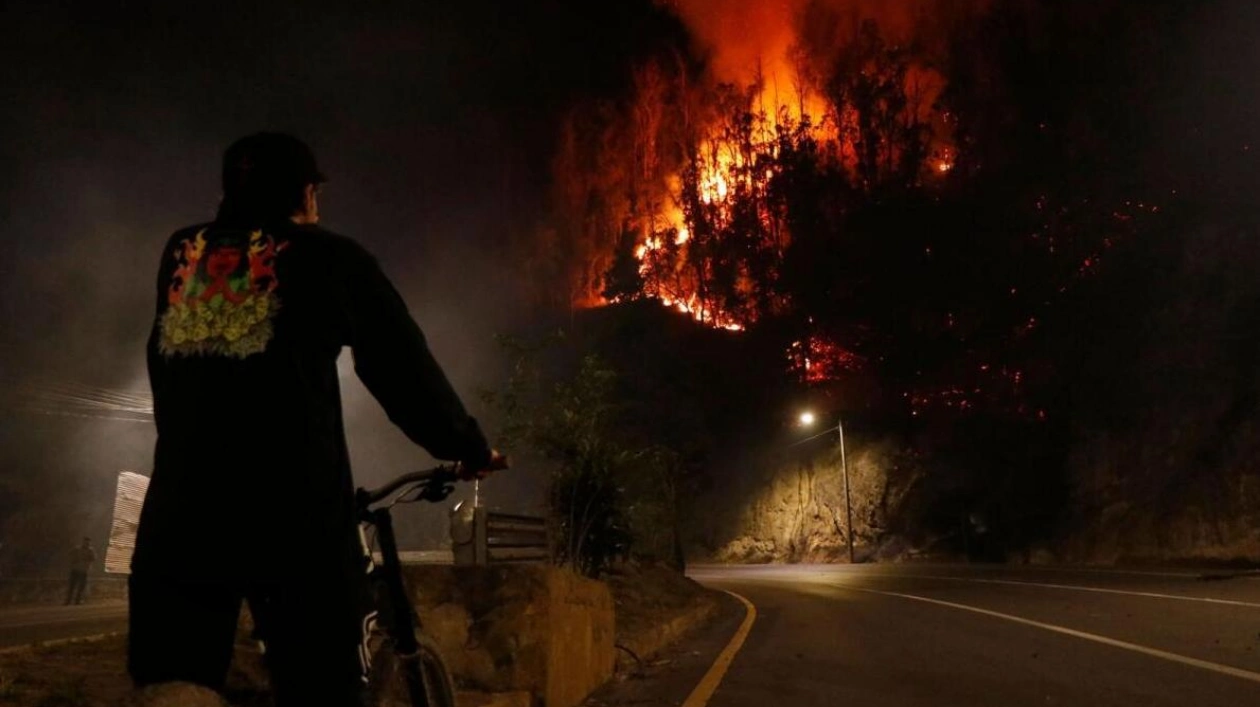A hill is engulfed in flames during a wildfire in Quito on September 24, 2024. Photo: AFP file
As COP29 concludes in Baku, President-elect Donald Trump's recent pledge to withdraw the US from the Paris climate agreement once more has dampened global climate initiatives. Although this outcome may not be unexpected, it highlights the ineffectiveness of relying solely on political solutions to address the climate emergency. Over the past three decades, emissions have continued to escalate, the climate is nearing a point of no return, and progress on the Sustainable Development Goals (SDGs) is stalling, with recent data indicating that 35% of targets are either stagnant or regressing. Simultaneously, the financial gap required to achieve the SDGs has surged to USD 4.5 trillion annually—a 60% increase from the 2014 estimate when the SDGs were introduced. This grim scenario underscores the failure of government-led negotiations to resolve global issues, and the world cannot afford to wait another four years to tackle the climate crisis. Escalating geopolitical tensions in the Middle East further complicate multilateral efforts, and even the sustainable finance sector is facing significant skepticism. Once touted as the future of ethical investing, ESG funds are losing their appeal. Global investment in ESG funds has declined since 2021, dipping into negative territory by late 2023, driven by investor doubts about the genuine impact of these so-called sustainable investments. This emerging 'ESG fatigue' among investors underscores the urgent need for new strategies. To achieve substantial progress, the focus must shift towards a model that can mobilize significant private capital for impactful projects in regions lagging behind, such as the Middle East, Africa, and Southern Asia (MEASA). While the MEASA region struggles to advance in this area, it also possesses the highest economic growth potential. The UAE's access to emerging markets in the MEASA region uniquely positions it to channel investment and foster transformative growth opportunities. This combination of factors enables what is termed as transition investment, a philosophy aimed at achieving socio-economic impact alongside financial returns by leveraging emerging markets. There is a clear demand for this approach. To launch our latest report, the Transition Investment Lab at Stern at NYU Abu Dhabi convened representatives from global sovereign wealth funds, financial institutions, and development banks, collectively managing some $1.2 trillion. Their feedback was straightforward—there is a strong appetite for transition investment, which reframes the narrative on some of the world’s most pressing issues. Transition investment is more than just a new label in sustainable finance; it offers a proactive, forward-looking approach to risk management, addressing hidden liabilities that could pose long-term threats to investors’ portfolios. However, to transform transition investment into a viable opportunity, reliable data on risk and return is crucial. Recent data from entities like The Global Emerging Market Risk Database Consortium (GEMs) has shown that projects in developing economies often carry lower risk. Yet, to fully harness the potential of transition investment, more detailed, transaction-level data across various asset classes is needed. Transition investment is not just about saving the planet or safeguarding the common good. It represents a novel approach to risk management and growth, promising benefits for both investors and society. Through extensive collaboration and rigorous analysis, TIL and other leaders aim to establish transition investment as a cornerstone of global finance—laying the groundwork for prosperity and a sustainable future for all, independent of the unpredictable realm of global politics.
Source link: https://www.khaleejtimes.com






